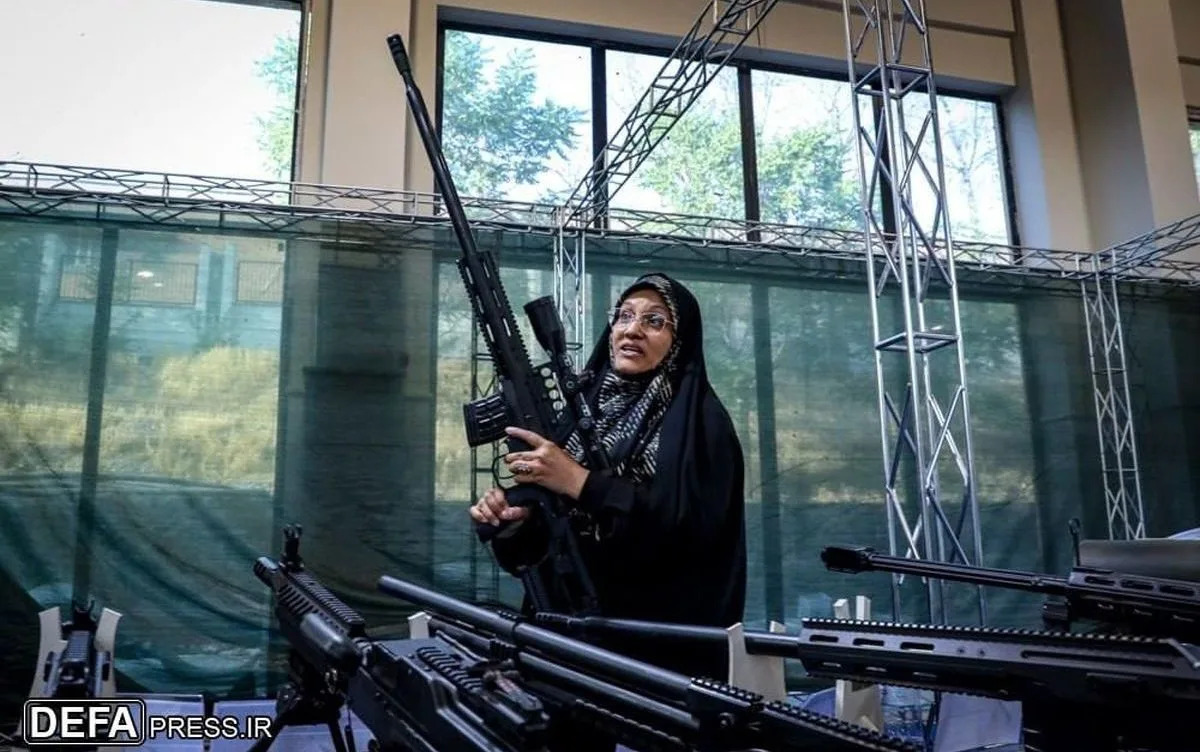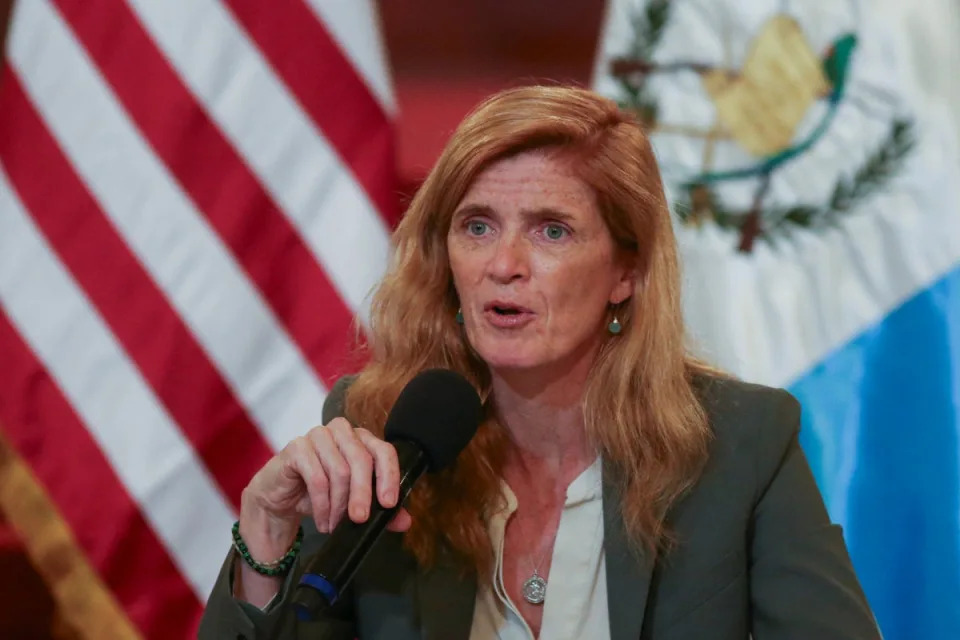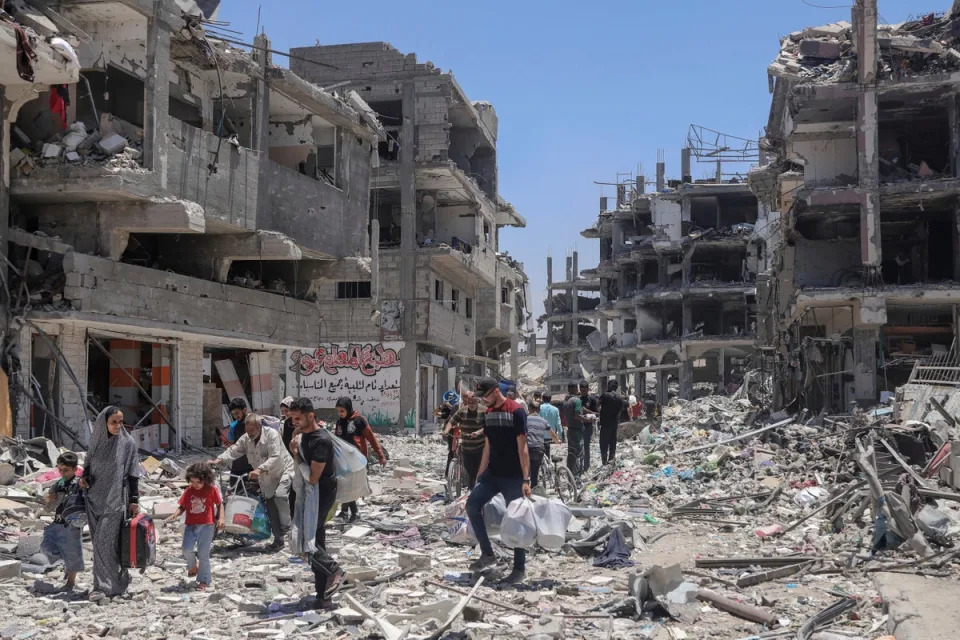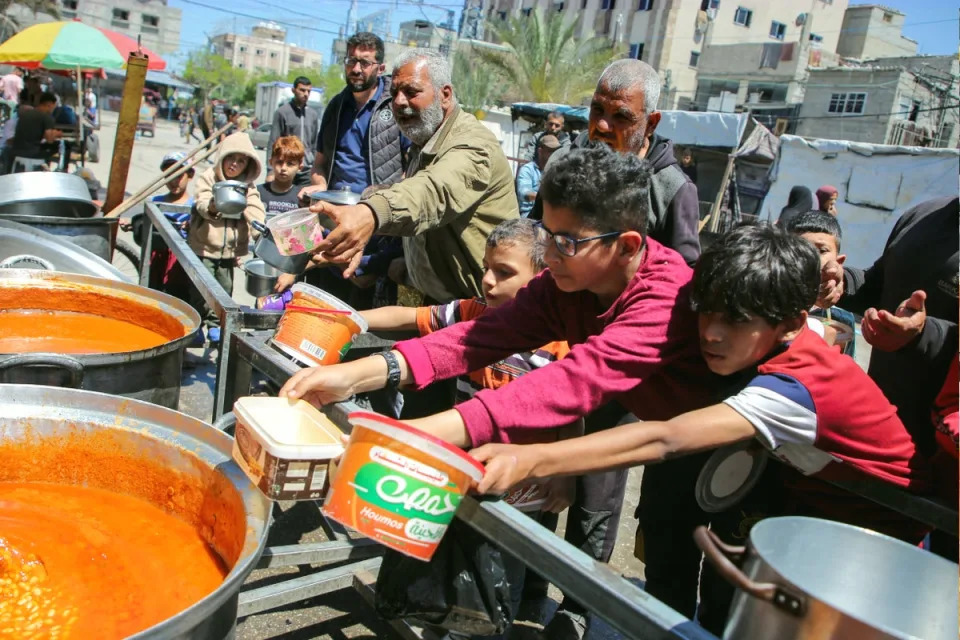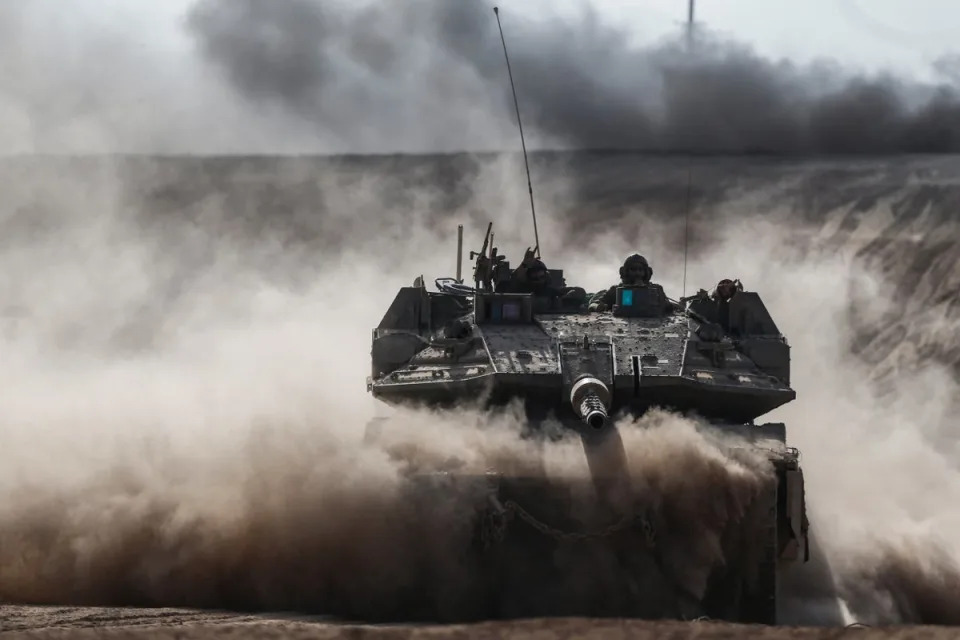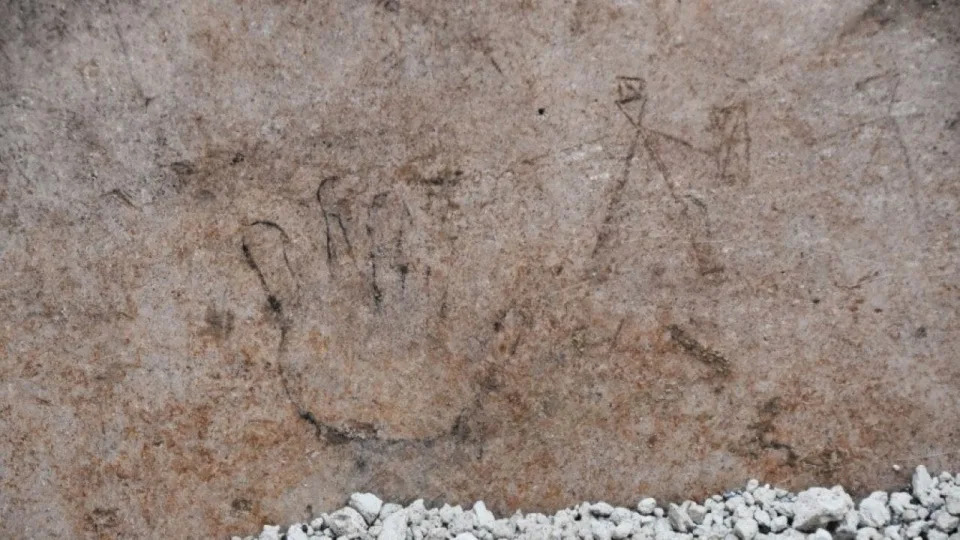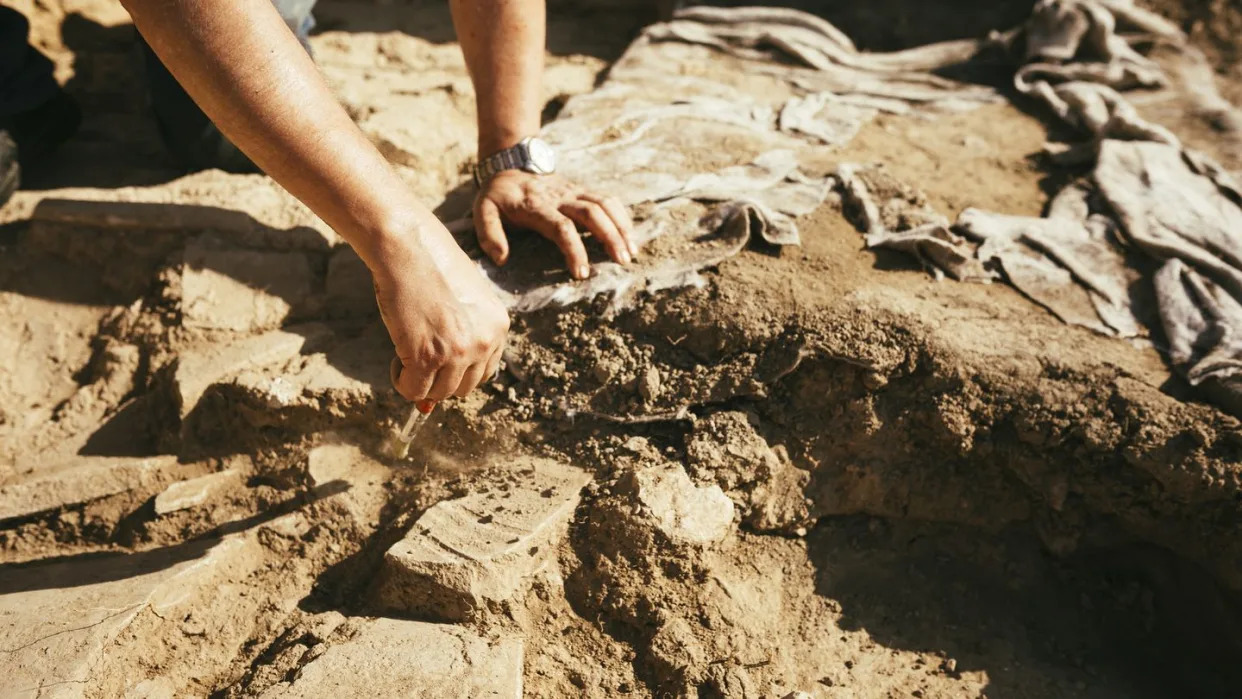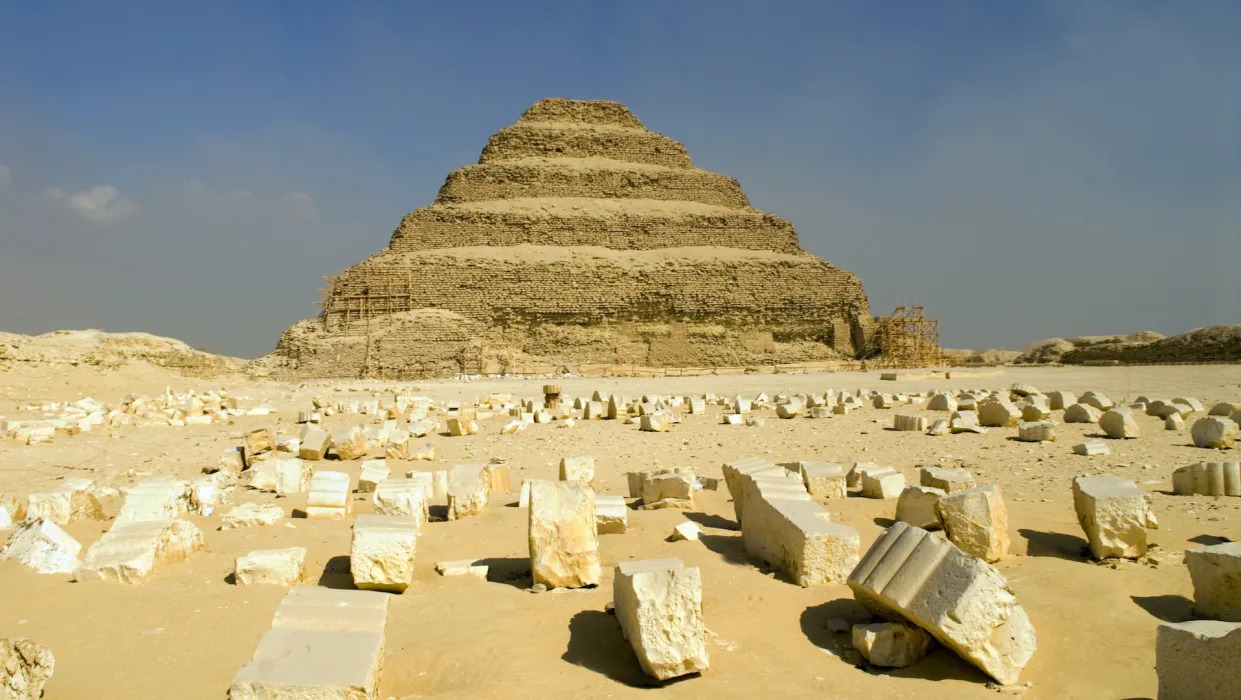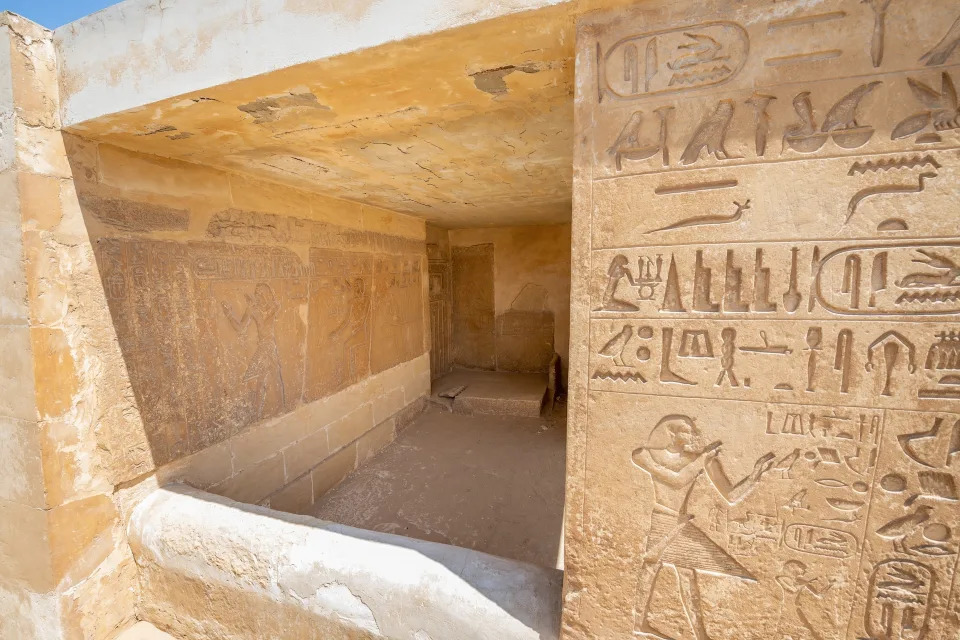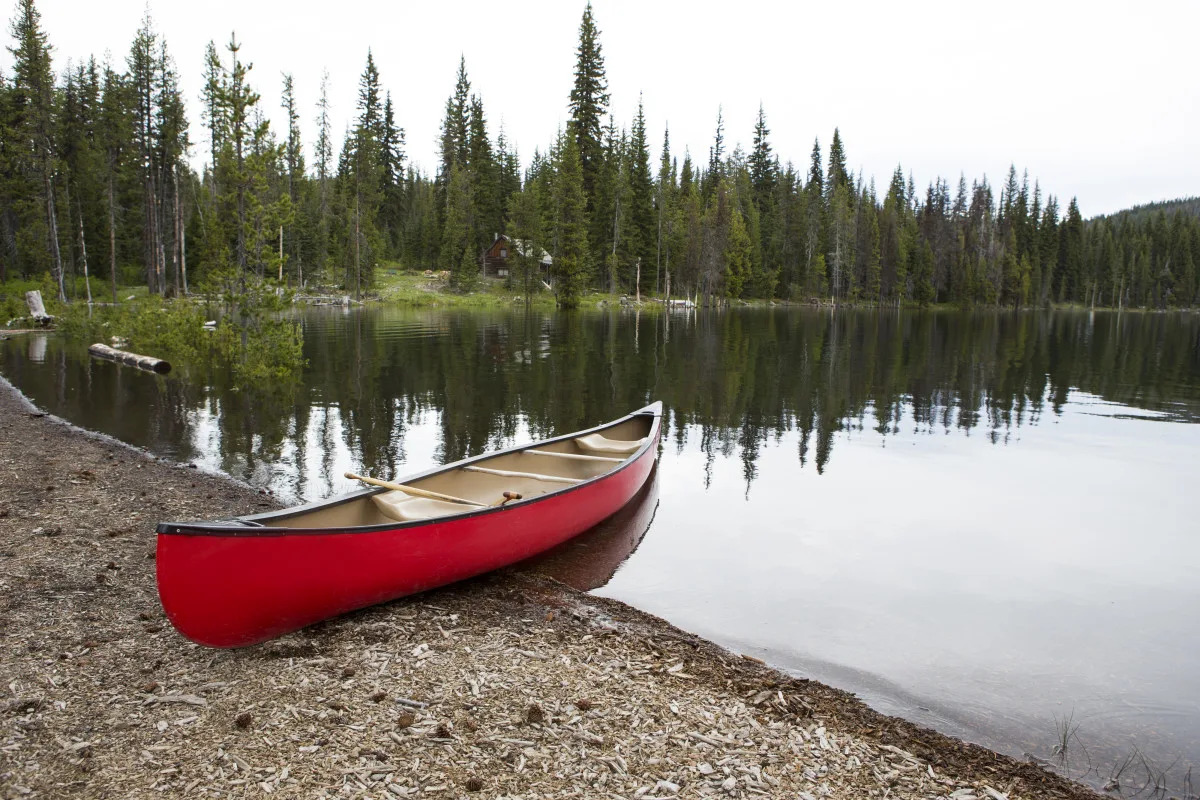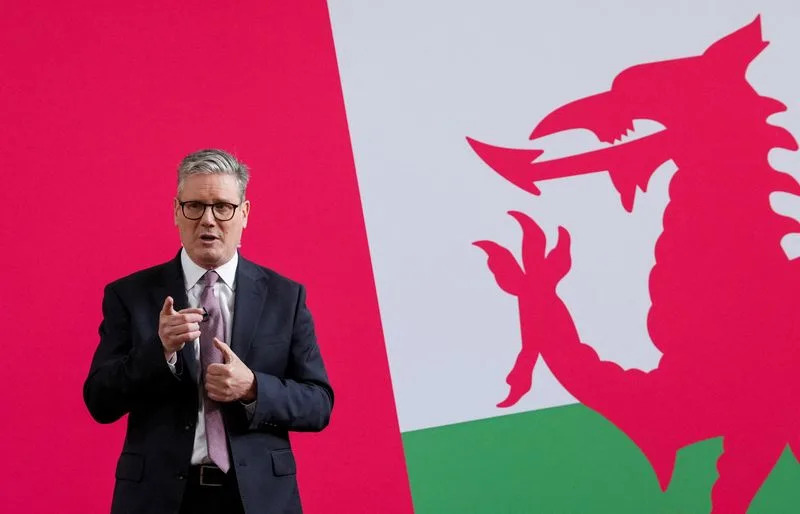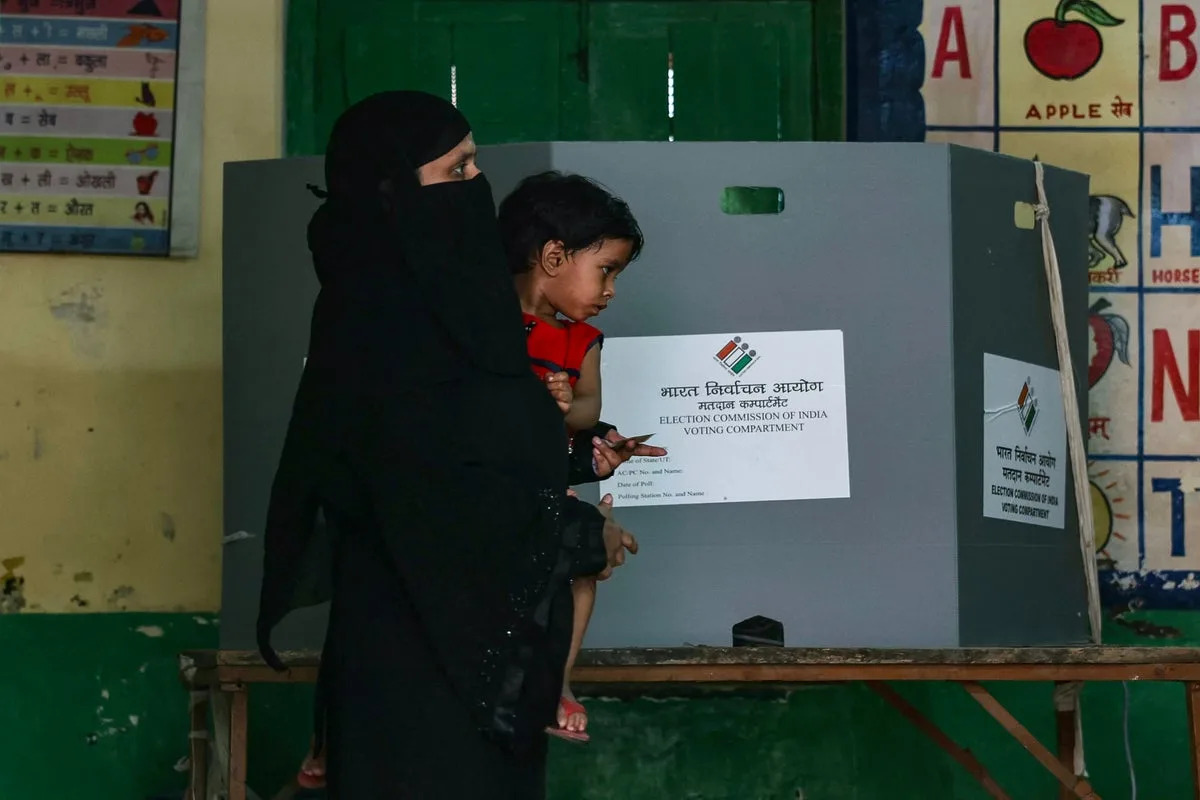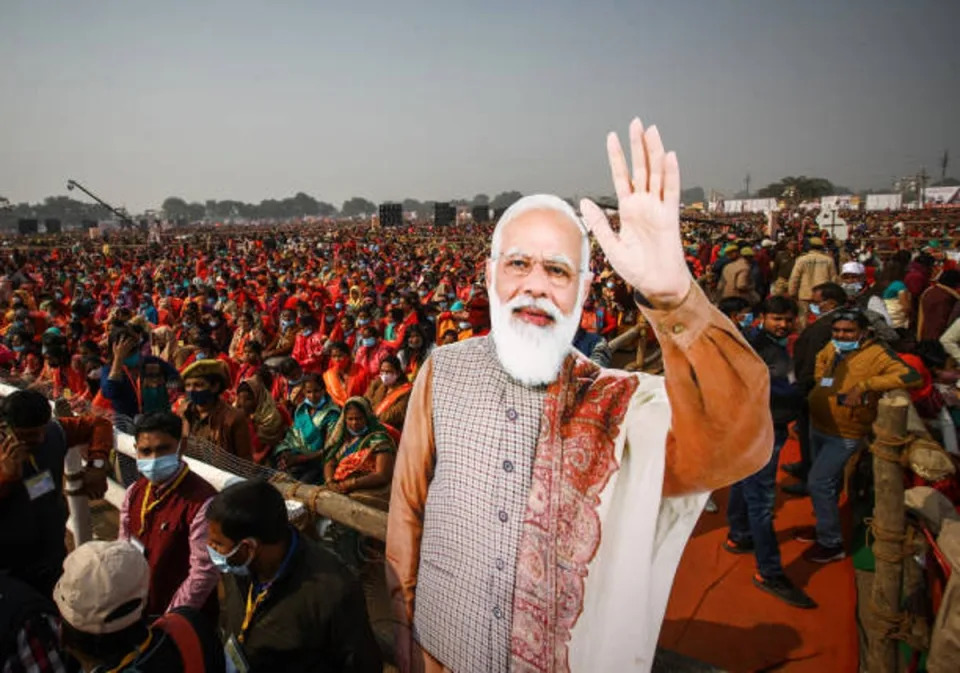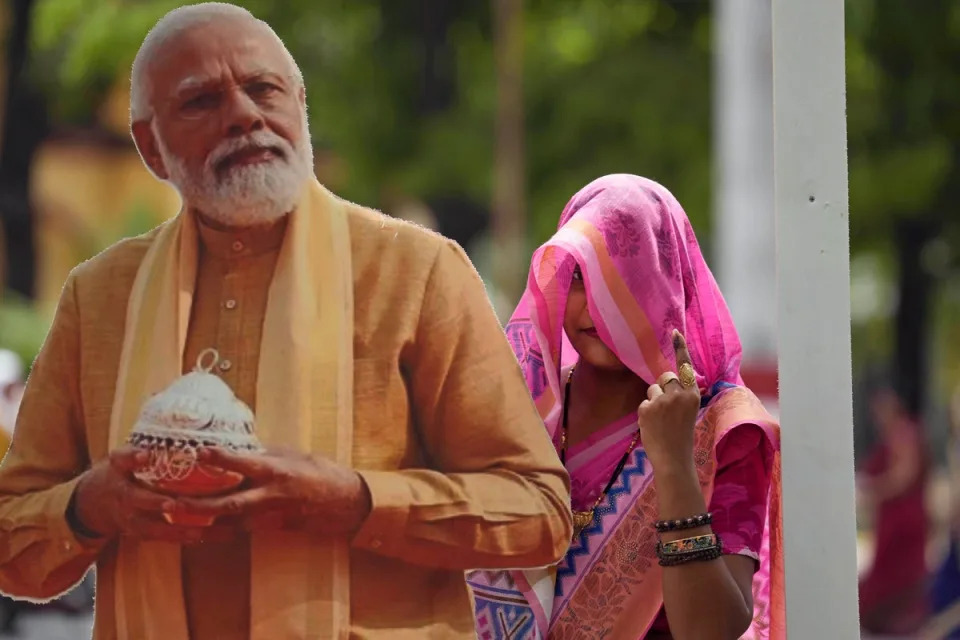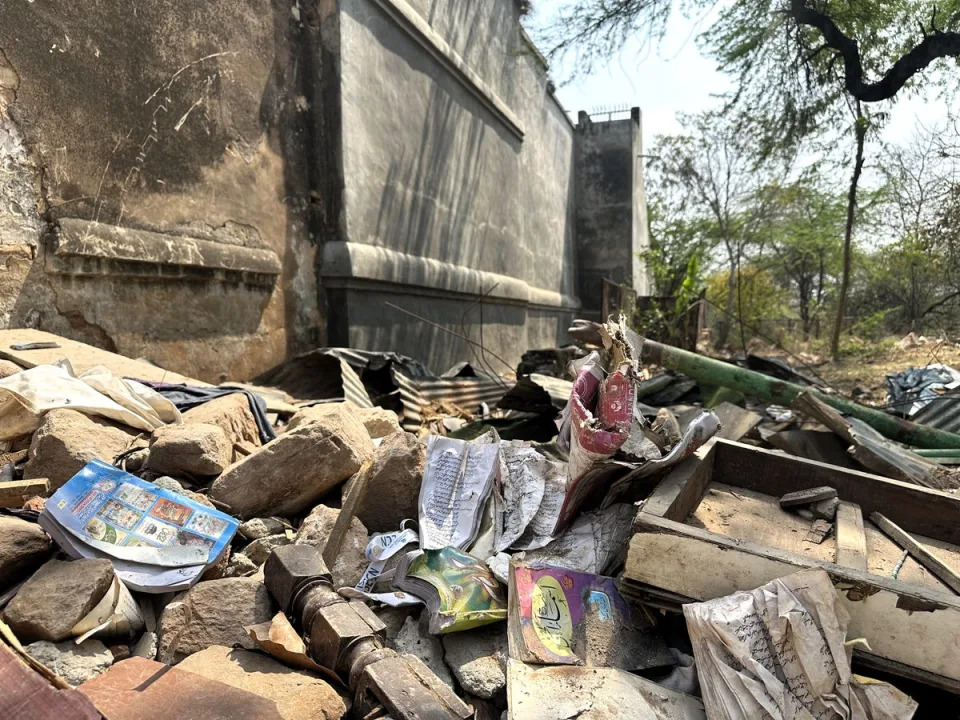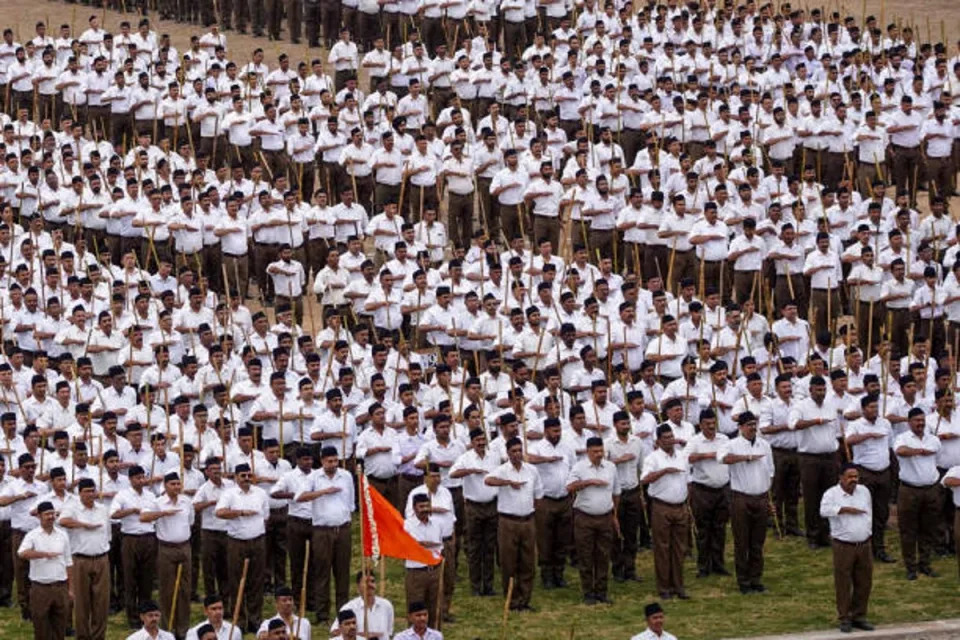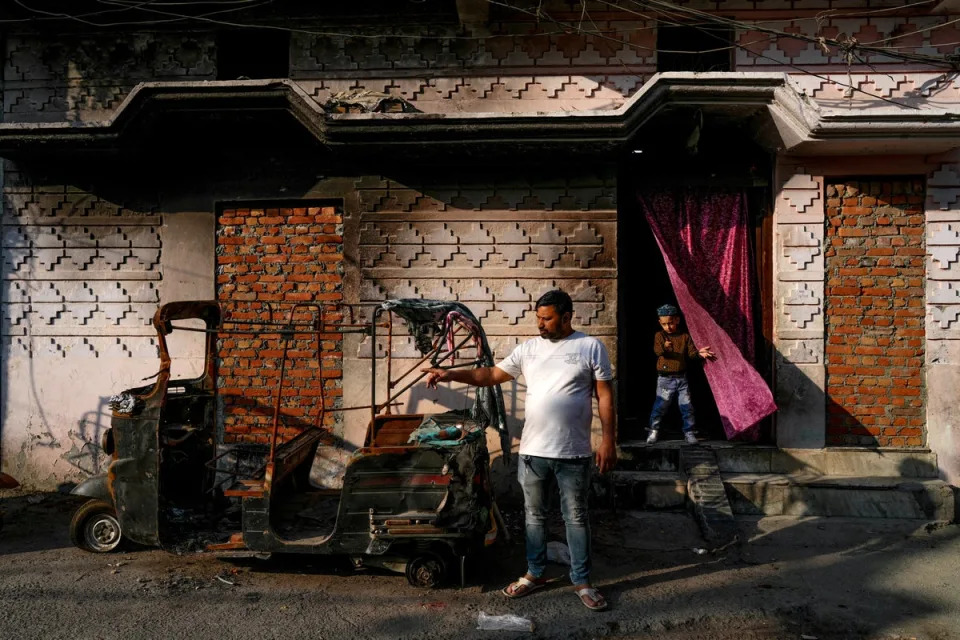GERALD IMRAY
ASSOCIATED PRESS
CAPE TOWN, South Africa (AP) — It was a historic day for South Africa. The political party that ended the racially divisive era of apartheid and sent global hopes soaring with a vibrant new democracy has lost its three-decade grip on power, according to election results Saturday.
For the first time, the African National Congress will have to form a coalition to govern South Africa, whose role on the global stage is growing as it takes Israel to court over its actions in Gaza and assumes the presidency of the Group of 20 nations late this year.
Here’s what might lie ahead for a leading voice for the developing world after the ANC lost its dominance at home.
CHALLENGING ISRAEL OVER GAZA
South Africa has become the most visible critic of Israel’s actions in Gaza by accusing it of genocide in a case at the International Court of Justice, the U.N.'s top court.
The case has been largely driven by the ANC, which has long identified with the Palestinian cause and sees in Gaza and the occupied West Bank uncomfortable parallels with the distant "homelands" created for South Africa's Black people by the former white-controlled government under the brutal system of apartheid.
Israel vehemently denies the allegations of genocide. The ANC’s loss of its parliamentary majority in this week's election made news in Israel.
The case at the world court could go on for years, meaning a new South African coalition government will inherit it. The ANC likely will form a governing deal with one or more of South Africa's three main opposition parties — the centrist Democratic Alliance, the far-left Economic Freedom Fighters and the populist new MK Party of former President Jacob Zuma.
The Democratic Alliance, which received around 21% of the vote, has said it doesn't agree with the genocide case against Israel and would rather see South Africa push for a mediated settlement in the Israel-Hamas war. The EFF is seen to be at least as pro-Palestinian as the ANC and has also accused Israel of genocide. The position of the MK Party, formed late last year, is not clear.
G20 PRESIDENCY LIES AHEAD
South Africa has long been seen as a leading representative of the African continent in the world, and on Dec. 1 it assumes the prominent presidency of the Group of 20 nations — 20 leading rich and developing nations. South Africa will take over from Brazil, which is using its presidency to push for greater representation of developing nations on the global stage.
South Africa is the only African nation in the G20. The ANC and its new governing partner or partners will need to look beyond South African politics and find a common stance on pressing global issues such as climate change, conflict and reforms of international financial institutions.
“Regardless of the electoral outcome, deep-seated elements of South African foreign policy will persist, such as championing the rights of Palestinians and calling for international institutions to reform to better reflect the priorities of African states,” Michelle Gavin wrote last month for the Council on Foreign Relations.
AND THEN THERE'S RUSSIA
South Africa’s diplomacy under the ANC has drawn attention for its historic pro-Moscow stance that continued after Russia's full-scale invasion of Ukraine more than two years ago. While the United States and others in the West have long recognized the ANC's ties to Russia — they go back to the fight against apartheid — the U.S.-South Africa relationship was seriously strained when the ANC government allowed Russian and Chinese warships to conduct drills off its coast in early 2023.
The main opposition Democratic Alliance has been strongly critical of the ANC over its relationship with Russia, accusing it of betraying its claimed position of nonalignment and neutrality with regards to the war in Ukraine and the larger tensions between Russia and the West.
Gavin suggested that an “unstable” governing coalition could hurt South Africa as a gateway for foreign investors and “push the country even closer to Russia and China."
___
AP Africa news: https://apnews.com/hub/africa
A guide to what's next for South Africa and the key figures in unprecedented coalition talks
CAPE TOWN, South Africa (AP) — It was a historic day for South Africa. The political party that ended the racially divisive era of apartheid and sent global hopes soaring with a vibrant new democracy has lost its three-decade grip on power, according to election results Saturday.
For the first time, the African National Congress will have to form a coalition to govern South Africa, whose role on the global stage is growing as it takes Israel to court over its actions in Gaza and assumes the presidency of the Group of 20 nations late this year.
Here’s what might lie ahead for a leading voice for the developing world after the ANC lost its dominance at home.
CHALLENGING ISRAEL OVER GAZA
South Africa has become the most visible critic of Israel’s actions in Gaza by accusing it of genocide in a case at the International Court of Justice, the U.N.'s top court.
The case has been largely driven by the ANC, which has long identified with the Palestinian cause and sees in Gaza and the occupied West Bank uncomfortable parallels with the distant "homelands" created for South Africa's Black people by the former white-controlled government under the brutal system of apartheid.
Israel vehemently denies the allegations of genocide. The ANC’s loss of its parliamentary majority in this week's election made news in Israel.
The case at the world court could go on for years, meaning a new South African coalition government will inherit it. The ANC likely will form a governing deal with one or more of South Africa's three main opposition parties — the centrist Democratic Alliance, the far-left Economic Freedom Fighters and the populist new MK Party of former President Jacob Zuma.
The Democratic Alliance, which received around 21% of the vote, has said it doesn't agree with the genocide case against Israel and would rather see South Africa push for a mediated settlement in the Israel-Hamas war. The EFF is seen to be at least as pro-Palestinian as the ANC and has also accused Israel of genocide. The position of the MK Party, formed late last year, is not clear.
G20 PRESIDENCY LIES AHEAD
South Africa has long been seen as a leading representative of the African continent in the world, and on Dec. 1 it assumes the prominent presidency of the Group of 20 nations — 20 leading rich and developing nations. South Africa will take over from Brazil, which is using its presidency to push for greater representation of developing nations on the global stage.
South Africa is the only African nation in the G20. The ANC and its new governing partner or partners will need to look beyond South African politics and find a common stance on pressing global issues such as climate change, conflict and reforms of international financial institutions.
“Regardless of the electoral outcome, deep-seated elements of South African foreign policy will persist, such as championing the rights of Palestinians and calling for international institutions to reform to better reflect the priorities of African states,” Michelle Gavin wrote last month for the Council on Foreign Relations.
AND THEN THERE'S RUSSIA
South Africa’s diplomacy under the ANC has drawn attention for its historic pro-Moscow stance that continued after Russia's full-scale invasion of Ukraine more than two years ago. While the United States and others in the West have long recognized the ANC's ties to Russia — they go back to the fight against apartheid — the U.S.-South Africa relationship was seriously strained when the ANC government allowed Russian and Chinese warships to conduct drills off its coast in early 2023.
The main opposition Democratic Alliance has been strongly critical of the ANC over its relationship with Russia, accusing it of betraying its claimed position of nonalignment and neutrality with regards to the war in Ukraine and the larger tensions between Russia and the West.
Gavin suggested that an “unstable” governing coalition could hurt South Africa as a gateway for foreign investors and “push the country even closer to Russia and China."
___
AP Africa news: https://apnews.com/hub/africa
A guide to what's next for South Africa and the key figures in unprecedented coalition talks
GERALD IMRAY
CAPE TOWN, South Africa (AP) — South Africa's election has decided little, other than the African National Congress that liberated the country from apartheid in 1994 has lost its 30-year majority.
It remained the biggest party, though. With no one holding a majority, South Africa's party leaders are embarking on coalition talks to form a government. South Africa has never had to do this due to the ANC's long dominance.
There are four major political parties and at least eight with significant shares of the vote after last week's election. It'll be complicated.
Here's a guide to some of the key figures and what might be coming next as South Africa enters uncharted territory.
PRESIDENT CYRIL RAMAPHOSA
Once a protege of Nelson Mandela, Ramaphosa, 71, has now overseen the worst election result in the ANC's history. He is under pressure within his own party as well as with voters, but he managed to laugh when an official made a slip Sunday and referred to him as the “extinguished” president rather than distinguished. “I'm not yet extinguished,” Ramaphosa said.
Ramaphosa's challenge is to guide his party to a coalition he sees as best amid different factions within the ANC. The obvious choice is the main opposition Democratic Alliance. Between them, they would have enough seats in Parliament to govern. But the DA has been fiercely critical of the ANC's policies for years and the marriage wouldn't be an easy one, even if both have said they are open to discussions.
Another option for the ANC is to join with one or both of the two other main opposition parties, the uMkhonto weSizwe party, or MK party, and the Economic Freedom Fighters. That could be damaging for South Africa's image with foreign investors given MK and the EFF have both pledged to nationalize South Africa's important gold and platinum mines and the central bank.
Ramaphosa's presidency is in the balance given a coalition agreement also has to translate into reelecting him for a second term. South Africans vote for parties in elections to decide how many seats they get in Parliament. Lawmakers then elect the president and the ANC now doesn't have enough lawmakers on its own to reelect Ramaphosa.
JOHN STEENHUISEN
Steenhuisen, 48, is the main opposition leader as head of the centrist DA and the only white leader among the four main parties. He said his party was also initiating talks with various parties, except MK and the EFF. The DA has drawn a line there and said it will never work with those two over ideological differences.
Getting Steenhuisen's DA and Ramaphosa's ANC together is widely viewed as the most stable coalition option by analysts. Some have suggested that other smaller parties could be brought in to create a wider coalition and dilute the ANC-DA mix.
FORMER PRESIDENT JACOB ZUMA
Zuma was the leader of the ANC and president of South Africa until he was replaced by Ramaphosa in both positions. They've become fierce rivals. Zuma, who is 82, was the wildcard of this election after only announcing his political comeback in December. His newly formed MK Party had a huge impact by winning 14% of the vote and taking some of the ANC's support to become the third biggest party in its first election.
Zuma's party has demanded Ramaphosa step down as a condition for a coalition, a mark of the personal animosity. The ANC rejected the condition. While it would seem there's little for them to work with to come together, MK does now have a significant vote share and seats in Parliament.
Zuma, who has served a prison sentence for contempt of court, is due to go on trial next year on charges of corruption. He was barred from running for a seat in Parliament in this election because of his criminal record.
JULIUS MALEMA
Malema's EFF party lost support in the election to drop to the fourth biggest party behind MK. Malema is the youngest of the major leaders at age 43 and also has old ties to the ANC as its former youth leader before he was expelled for misconduct.
Renowned as a firebrand, his party follows a Marxist ideology but there's some common ground between it and the ANC and the EFF was raised as a logical coalition partner for the ANC before MK overtook it and reduced its significance. Because of their differences, the inclusion of the EFF and MK in any coalition may result in the DA pulling out.
___
South Africa's president urges parties to find common ground in talks after election deadlock
MOGOMOTSI MAGOME and GERALD IMRAY
Updated Sun, June 2, 2024 election result, South Africa's African National Congress was talking to everyone in an effort to form a stable coalition government for Africa's most advanced economy after it lost its 30-year majority
JOHANNESBURG (AP) — President Cyril Ramaphosa called Sunday for South Africa's political parties to overcome their differences and find “common ground” to form the first national coalition government in its young democracy.
His comments came in a speech straight after final election results were announced confirming that no party won a majority in last week's vote. Unprecedented coalition talks were set to start to find a way forward for Africa’s most industrialized economy.
Ramaphosa's African National Congress party had already lost its 30-year majority after more than 99% of votes were counted by Saturday and showed it couldn’t surpass 50%. The ANC received 40% of the votes in last week’s election in the final count, the largest share.
Without a majority it will need to agree on a coalition with another party or parties for the first time to co-govern and reelect Ramaphosa for a second term. South Africa’s national elections decide how many seats each party gets in Parliament and lawmakers elect the president later.
“Our people have spoken,” Ramaphosa said. “Whether we like it or not, they have spoken. We have heard the voices of our people and we must respect their choices and their wishes. ... The people of South Africa expect their leaders to work together to meet their needs. This is a time for all of us to put South Africa first.”
The ANC was the party of Nelson Mandela and freed South Africa from the apartheid system of white minority rule in 1994. It had governed with a comfortable majority since then, but this election saw an unprecedented slump in its support as voters deserted the party due to its failure to solve widespread poverty, extremely high unemployment levels and problems with delivering basic government services to many in a nation of 62 million.
The ANC had said earlier Sunday that it was starting its negotiations with all major parties. More than 50 parties took part in the election, and at least eight had significant shares of the vote. At least 26 of them, including the MK Party led by former President Jacob Zuma, have lodged objections and complaints with the electoral body alleging voting irregularities, which it has promised to address.
ANC Secretary-General Fikile Mbalula said it was open to all negotiations, even with the main opposition Democratic Alliance, which has led the chorus of criticism of the ANC for years but is viewed by many analysts as the most stable coalition option for South Africa.
The DA won the second most votes with 21.8%, and the two parties would hold a majority together and be able to govern. DA leader John Steenhuisen said his party was also initiating talks with parties. The ANC won 159 seats in the 400-seat Parliament, down from the 230 it won in the last election. The DA increased slightly to 87 seats.
There is some time pressure for coalition talks to progress and for the uncertainty to be minimized, given that the new Parliament needs to sit for the first time and elect a president within 14 days of the election results being declared.
Ramaphosa is seeking a second and final term and Mbalula said his position as leader of the ANC was not in question despite the election result. Mbalula said the ANC would not consider the demands by Zuma's MK Party that Ramaphosa step down as a condition for talks.
“No political party will dictate terms to us, the ANC. They will not ... You come to us with that demand, forget (it),” Mbalula said.
He said the ANC would not be arrogant, though. “The elections have humbled us, they have brought us where we are,” he said.
South Africa is a leading voice for its continent and for the developing world on the global stage and is due to take over the presidency of the Group of 20 rich and developing nations late this year. It’s the only African nation in that group.
“Everyone is looking to see if South Africa can weather the storm and come out the other side,” political analyst Oscar van Heerden said on the eNCA news network.
Amid many coalition options, the ANC could also join with MK and the far-left Economic Freedom Fighters, although they have been cast as partners that would make investors uneasy. Both have pledged to nationalize parts of South Africa’s economy, including its gold and platinum mines, among the world’s biggest producers.
The DA has long said it will not work with the EFF and MK, calling them a “doomsday coalition” for South Africa. Steenhuisen, the party's leader, repeated that stance Sunday in a speech on national television but said his party was starting talks with others and would approach them “with cool heads and open minds.”
Political analyst van Heerden said an ANC-DA coalition would “possibly give stability” but there were some within the ANC who would oppose it. Other smaller parties could be involved to dilute it and make it more palatable for the ANC, some commentators said.
“The DA has approached the ANC as the enemy over many, many years,” van Heerden said. “The next few days is going to be a very difficult period. People will have to be mature behind closed doors.”
___
Imray reported from Cape Town, South Africa.
South Africa general election results: What was the vote share and will there be a new leader?
Lola Christina Alao
Mon, June 3, 2024

People queue to cast their votes at a polling station in Johannesburg (AP)
The African National Congress (ANC) party has lost its majority for the first time in 30 years of full democracy, in the South African general election.
The ANC famously led the fight to free South Africa from apartheid. High unemployment, power cuts, violent crime and crumbling infrastructure are said to have led to a loss of support for the former liberation movement.
The ANC also lost its majority in three provinces: Northern Cape; Gauteng, and KwaZulu-Natal, where MK was the largest party.
South Africa’s current president, 71-year-old Cyril Ramaphosa, has indicated he will not resign after the ANC’s defeat.
"What this election has made plain is that the people of South Africa expect their leaders to work together to meet their needs," he said.
He added that after 30 years, South Africans should be grateful their democracy worked: "We must respect their choices and their wishes."
What were the final vote numbers?
The ANC won 159 seats on a vote share of just over 40%.
The full results are as follows:
Here are the top parties:
ANC - 159 seats
DA - 87 seats
MK - 58 seats
EFF - 39 seats
IFP - 17 seats
PA - 9 seats
The remainder of the seats went to smaller parties.
Will there be a new president?
South Africans do not directly elect the president. They elect the members of the National Assembly, who then elect the president by a simple majority.
201 or more votes are needed to determine the presidency.
Now that the results have been announced, certain steps must be followed for South Africa to form a government. They include:
The allocation of seats
The first sitting of the National Assembly
The election of the president
The formation of government
All eyes on ANC as it discusses who to enlist to govern South Africa
Updated Mon, June 3, 2024
By Nellie Peyton and Tannur Anders
JOHANNESBURG (Reuters) -South Africa was on tenterhooks on Monday for the African National Congress to signal whom it will choose as a partner to govern the nation after it lost its majority in last week's election for the first time in 30 years of democracy.
The ANC had comfortably won every previous election since the end of apartheid in 1994 but this time voters weary of joblessness, inequality and rolling power blackouts gave it just 40.2% of the vote, down from 57.5% five years ago.
Its vote share was still the largest of any party but was not enough for the ANC to govern alone, thrusting South Africa into unknown political territory.
"This moment in our country calls for responsible leadership and constructive engagement," said President Cyril Ramaphosa in a weekly newsletter published on Monday.
The ANC's potential partners are diametrically opposed, ranging from the free-marketeer Democratic Alliance (DA) to uMkhonto we Sizwe (MK) and the Economic Freedom Fighters (EFF), parties that advocate nationalising mines and banks and redistributing land.
"We would work with anyone who wants to work with us but not with a cap in the hand," ANC secretary-general Fikile Mbalula said late on Sunday after the official results were announced.
With the future direction of government policy at stake, a working committee of 27 ANC officials was scheduled to meet on Tuesday to prepare a presentation on the party's options to be delivered to the National Executive Committee on Wednesday.
The meetings were earlier scheduled for Monday and Tuesday, respectively.
"It's a rescheduling," ANC spokesperson Mahlengi Bhengu-Motsiri told Reuters, refuting a local media report that the meetings were postponed due to internal conflict and adding "how can you have disagreements when they haven't even met yet?".
The DA and the smaller, socially conservative Inkatha Freedom Party (IFP) have both announced they had set up negotiating teams to engage with other parties. Both are part of an alliance of parties formed before the election.
"The people of South Africa spoke loud and clear that political parties must find each other and constitute a government on their behalf as they did not give a full mandate to one political party," said IFP leader Velenkosini Hlabisa.
The DA came second in the election with 21.8% of the vote, while MK, which is led by former president Jacob Zuma, got 14.6%. The EFF received 9.5% and the IFP 3.9%.
Under the constitution, the newly elected parliament must convene within two weeks of the results being declared, and one of its first acts must be to choose the nation's next president.
So far, ANC officials who have spoken in public have rallied round Ramaphosa but he may nevertheless come under pressure, whether from an internal challenge or from other parties refusing to work with him.
TOUGH TALKS AHEAD
"It is going to be very difficult coalition negotiations, even more so for the ANC because of its internal contradictions," said Zwelinzima Ndevu, director of the School of Public Leadership at Stellenbosch University.
Political analyst Ralph Mathekga said the DA was likely to push the ANC hard on making a strong commitment to root out corruption in party ranks, which could trigger resistance from some ANC figures he described as "heavily compromised".
"It's going to be a question as to whether the ANC signs up for anti-corruption or not," he said.
Despite that potential hurdle, some analysts said a deal between the ANC and the DA looked like the likeliest outcome because the DA had a positive record in government at the provincial level, in Western Cape where the major tourist city of Cape Town is located.
"I'm tending intuitively to think the DA has got slightly better odds than the EFF at this stage," said Susan Booysen, director of research at the Mapungubwe Institute for Strategic Reflection.
Financial markets, which favour the DA over either the EFF or MK due to its pro-business policy stance, appeared to be taking a similar view. South Africa's rand, stocks and government bonds made up some of their recent days' losses linked to post-election uncertainty.
Some analysts noted that a coalition was not the only possible outcome. A government of national unity bringing in all the main parties could not be ruled out, although that was seen as potentially unstable and prone to gridlock.
A minority ANC government, possibly with a confidence-and-supply deal whereby one or more other parties would support it on key parliamentary votes, was another hypothetical option.
The dark horse in the election was MK, the new party led by Zuma, but few analysts expected an ANC-MK tie-up given the bitter acrimony between them.
A divisive figure who remains popular in his home province of KwaZulu-Natal, Zuma was forced to quit as president in 2018 after a string of corruption scandals during his term in office and has since become an implacable enemy of Ramaphosa.
MK has said it is considering a court challenge to the election results despite its strong showing.
Analysts have long feared Zuma's party may stir up trouble if his supporters reject the results. They rioted and looted for days when he was arrested for contempt of court in 2021.
(Additional reporting by Bhargav Acharya, Alexander Winning, Wendell Roelf and Karin Strohecker; Writing by Estelle Shirbon; Editing by Gareth Jones and Emelia Sithole-Matarise)
South Africa election 2024: When will we know the result?
Damian Zane - BBC News
Sat, June 1, 2024
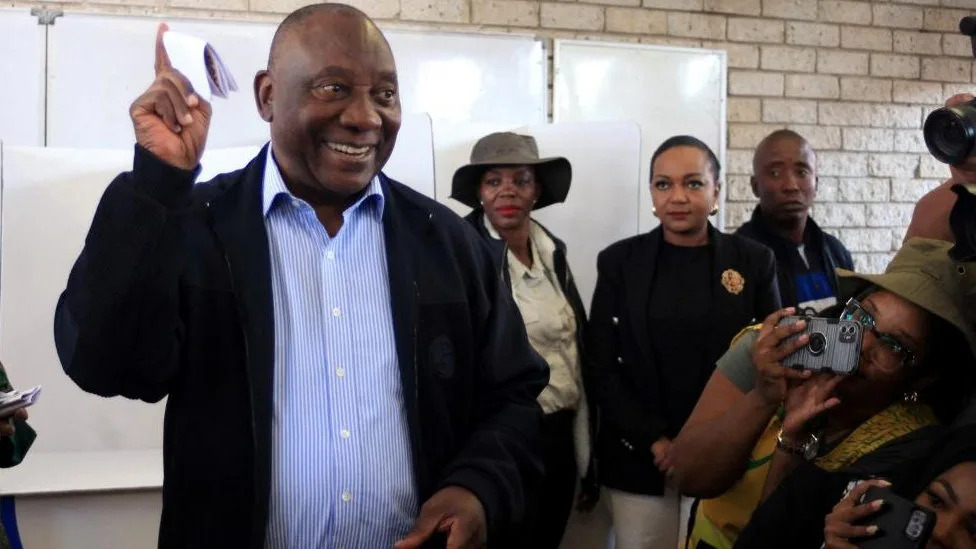
In the campaign President Cyril Ramaphosa said the ANC's achievements should not be forgotten [Reuters]
Almost all of the votes have been counted in South Africa after Wednesday's general election.
The governing African National Congress (ANC) has got just 40% - meaning it does not have a parliamentary majority for the first time in 30 years. It will now have to form a coalition with one or more parties.
Mounting criticism of the party that led the fight against apartheid under the late Nelson Mandela has chipped away at its support.
When will we know the result?
The electoral commission is expected to announce the final results at around 18:00 local time (16:00 GMT) on Sunday, but legally it has seven days to make the announcement. The count started as soon as polls closed on Wednesday and figures are being released as the tallying and verification in various areas is completed.
All of the votes have been counted and almost all tallied but the commission has until Sunday to deal with any complaints or objections.
South Africans have been used to knowing the result by the Saturday after polling day, but this time things are expected to take longer as there are more ballot papers to count because of the introduction of an extra vote for the national parliament.
What happened on Wednesday?
Wednesday's election saw long lines of voters outside polling stations late into the night across the country, with one electoral official in Johannesburg saying the queues were reminiscent of the historic 1994 election.
That was when white-minority rule ended and the ANC came to power. This was the country's seventh democratic general election.
Nearly 28 million South African had registered to vote and they were electing representatives to the national and provincial parliaments.
Queues 'as long as 1994' : The vote as it happened
What is at stake for the ANC and what are its policies?
The ANC, now led by President Cyril Ramaphosa, was under growing pressure going into the election.
Stubbornly high unemployment, which hit 32% last year, persistent economic inequalities, corruption allegations and frequent power cuts have reduced its popularity.
High levels of violent crime - on average 130 rapes and 80 murders a day in the last three months of 2023 - have also dented confidence in the authorities.
But the ANC said it was working to fix these problems.
And it urged people not to throw away gains made since the end of apartheid. The party said poverty levels had fallen, a greater proportion of South Africans were living in decent homes and access to healthcare had improved.
The ANC promised to create millions more jobs over the next five years, to boost investment, support the private sector and end corruption.
Desperate search for jobs overshadows vote
What are the DA and EFF opposition parties offering?
The main opposition Democratic Alliance (DA) said the "country is in crisis".
It wants to liberalise the economy, including a move towards greater privatisation.
It has pledged to create two million new jobs, end power cuts and "halve the rate of violent crime".

The DA says it can save South Africa [EPA]
To address unemployment and inequality, the Economic Freedom Fighters (EFF) - the third largest party in parliament - has radical economic solutions.
The party argued that the ANC had not redressed the racial economic imbalances of apartheid. It plans to redistribute land to the less well-off.
The EFF also wants to nationalise mines, banks and other key parts of the economy, arguing that the wealth of the country would then be used to benefit the majority of the population.
What about Jacob Zuma and the MK party?
Disgruntled former President Jacob Zuma - who was ousted by Mr Ramaphosa amid corruption allegations that he denies, and later jailed for defying a court order - is the leader of a fresh rival to the ANC.

Ex-President Jacob Zuma was campaigning as the leader of the new MK party [BBC]
The uMkhonto weSizwe (MK) party, which took its name from the ANC's former armed wing, added further unpredictability to the race. It could make a strong showing, especially in Mr Zuma's home province of KwaZulu-Natal.
Before the election, the party saw off a court challenge by the ANC over the use of the MK name.
In a separate case, the country's highest court barred the ex-president from running for parliament. The Constitutional Court ruled that his 15-month prison sentence disqualified him. However, his image still appeared on the ballot paper.
In its manifesto, the MK party said the country took a wrong economic turn by pursuing market-led policies and that society was "adrift from its core values".
Jacob Zuma's MK takes fight to ANC stronghold
Jacob Zuma - the political wildcard
Who will be South Africa's next president?
South Africans do not vote directly for a president.
Instead they elect the 400 members of the National Assembly, who go on to vote for a new head of state within 30 days of the general election.
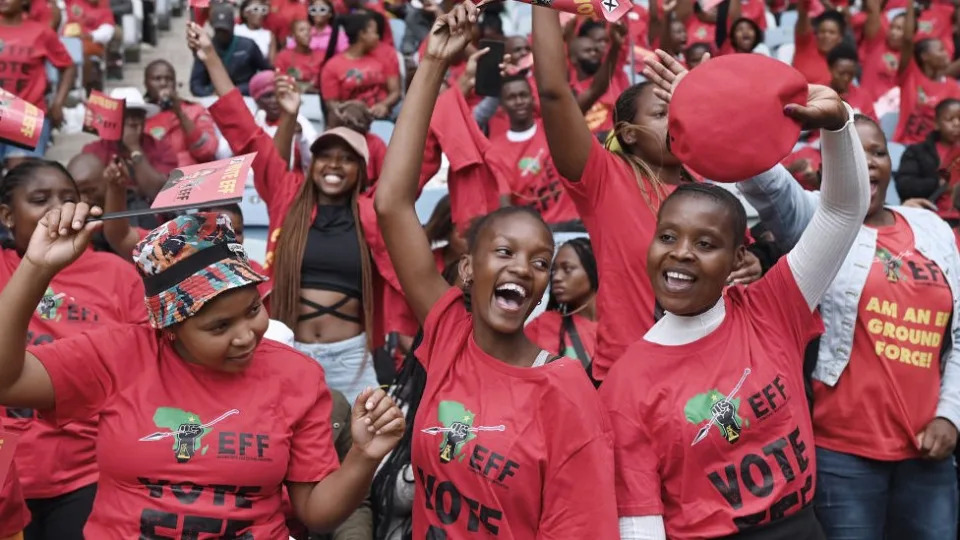
The EFF says that greater state control of the economy would create a fairer society [Getty Images]
As a result, there were no presidential candidates as such, but each party leader fronted their national campaign and their portrait appeared on the ballot paper.
The ANC's President Ramaphosa, the DA's John Steenhuisen and the EFF's Julius Malema all featured prominently.
The leader of whichever party can muster a majority in the National Assembly after the election would be expected to become the next president.
Cyril Ramaphosa - union leader, mine boss, president
John Steenhuisen - the man vowing to 'rescue' South Africa
Julius Malema - the radical agenda-setter
How do general elections work in South Africa?
The proportion of seats that parties are allocated in the 400-member National Assembly is directly related to their share of the vote.
In 2024, independent candidates were included for the first time.
This meant that South Africans had three votes:
National parliament: One for 200 of the seats with just political parties named on the ballot
National parliament: One for the remaining 200 seats with a different ballot paper for each of the nine provinces, listing the parties in that region and independent candidates
Provincial assembly: One for the independent candidates or parties in the regional legislature.
How would a coalition be formed in South Africa?
The constitution does not spell out how a coalition could be formed if no party gets more than 50% of the vote.
But assuming the ANC remains the largest party, smaller groupings could informally agree to support an ANC government on a vote-by-vote basis in return for some concessions.
Or, at the other end of possibilities, the ANC could enter a formal coalition with some parties, including a written agreement outlining legislative plans and the distribution of cabinet posts.
Any other party would face the same choices.
An opposition coalition has also been mooted, though analysts say this is highly unlikely.
In a pre-election deal, a group of parties - led by the DA - signed up to what has been called the Multi-Party Charter for South Africa. If together they get more than 50% of the seats, they have already agreed to form a coalition. The agreement does not include the EFF or the MK party.

[BBC]
More about the election:
South Africans still battling 'economic aparthied' after 30 years
Cynthia voted for Nelson Mandela. Now she's abandoning his successors
Election issues in eight charts
Influencers rally youth to vote
Full coverage of the elections

[BBC]


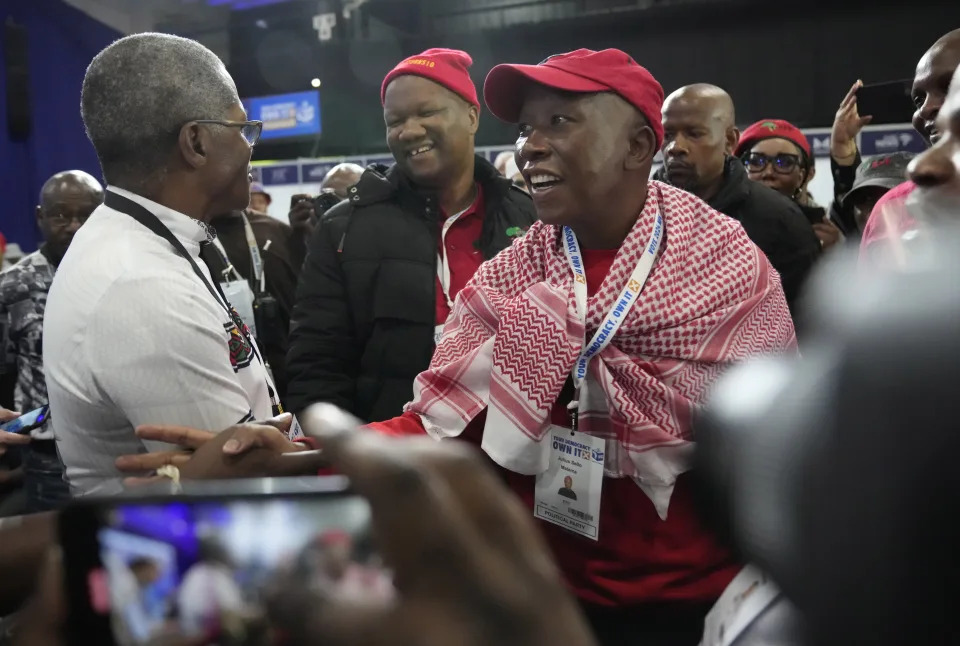

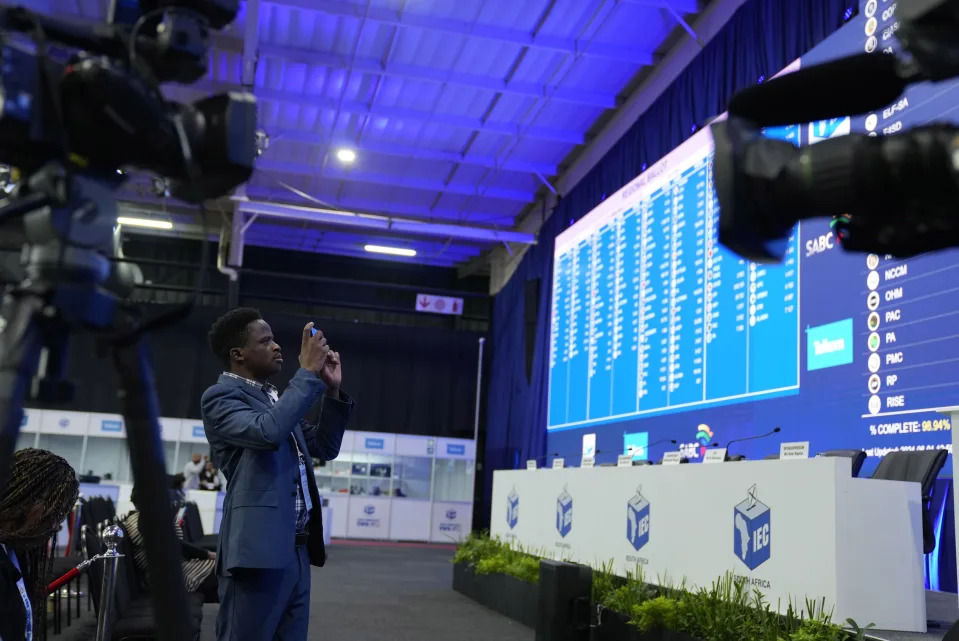
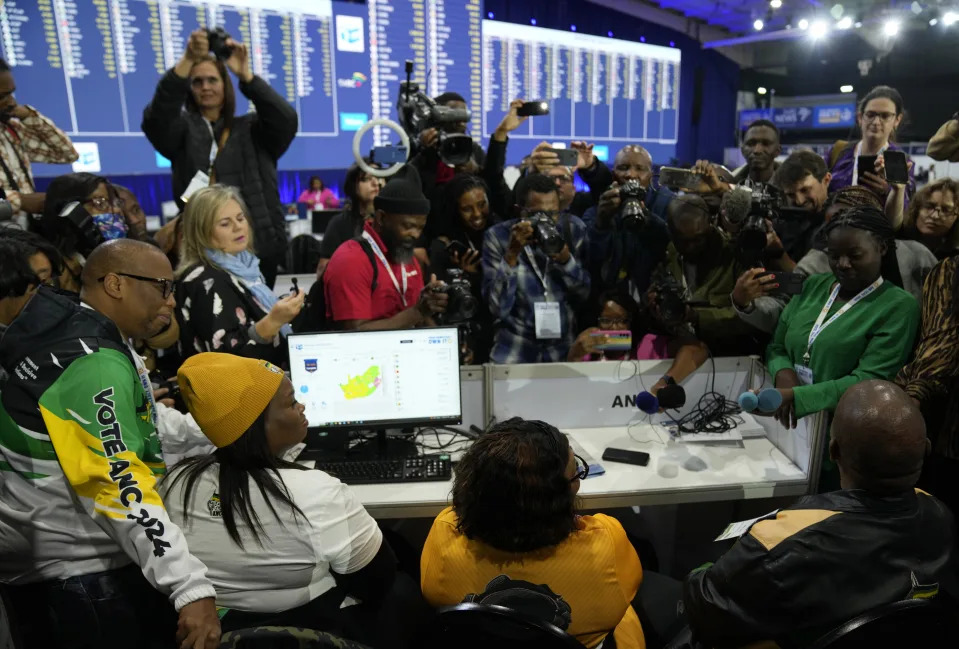


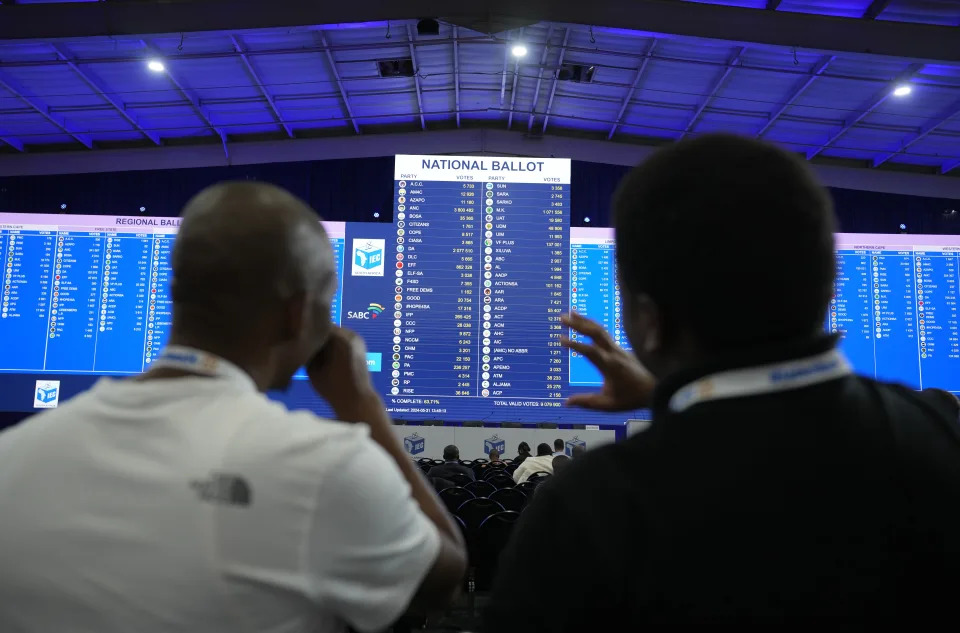
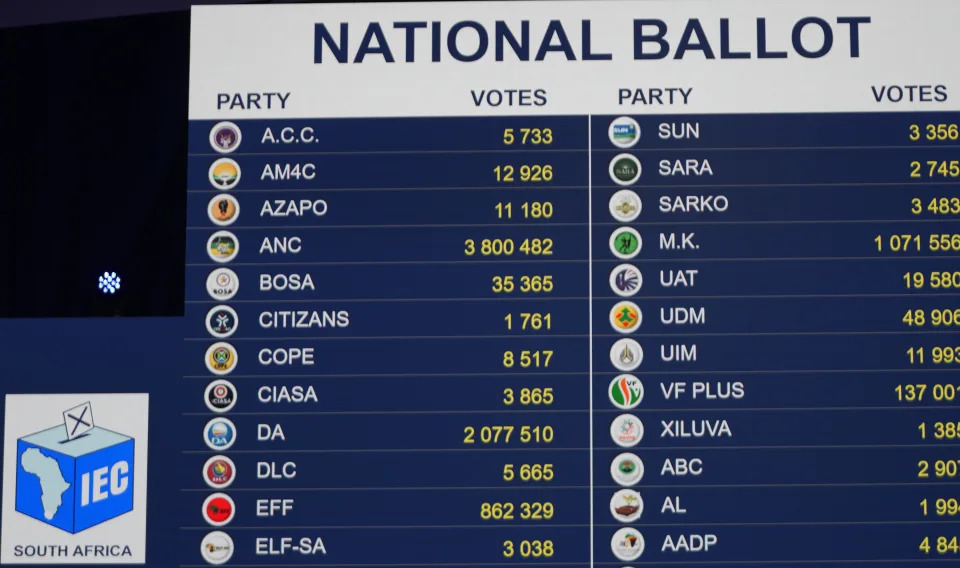



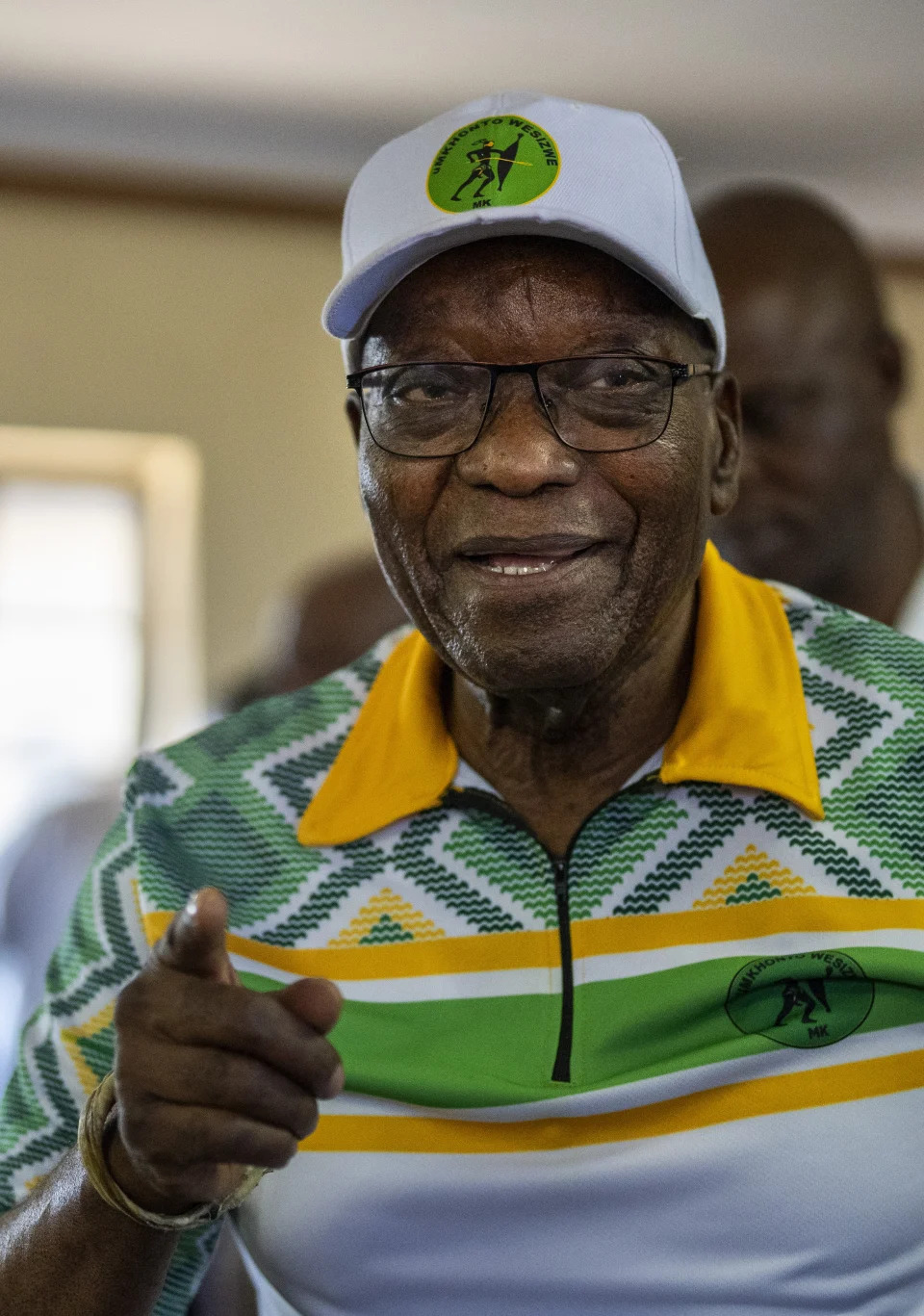
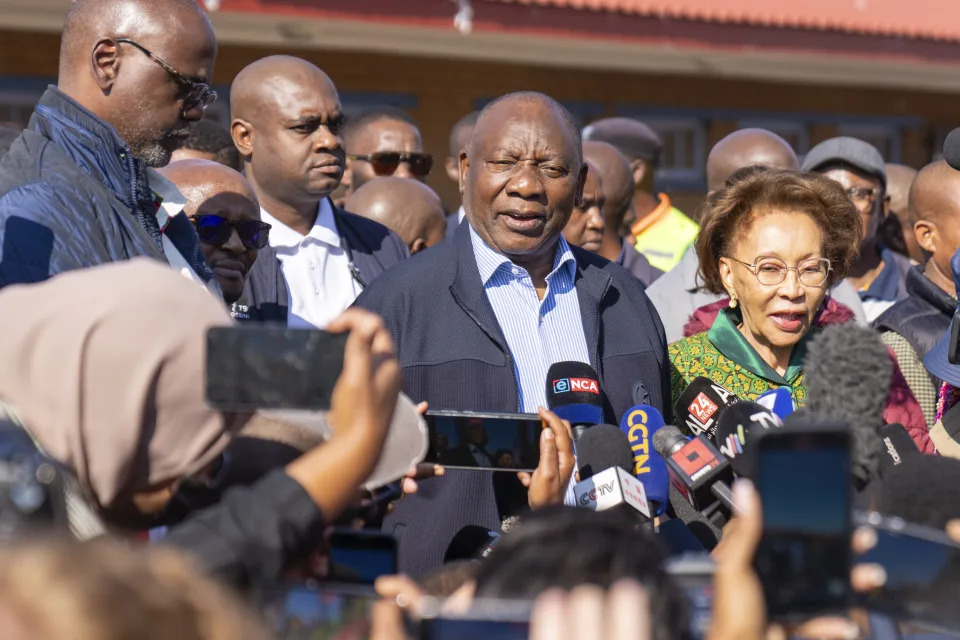

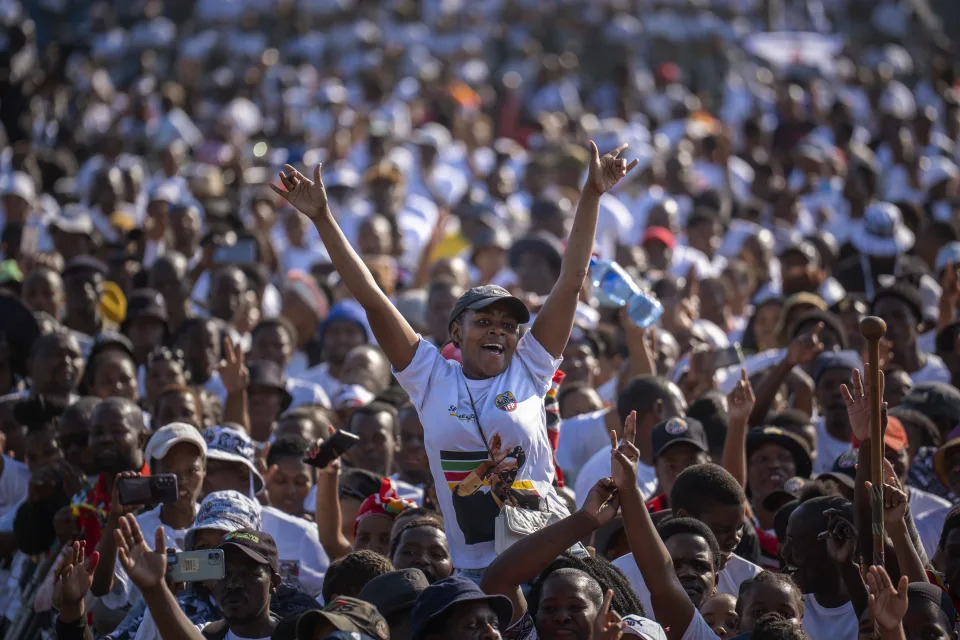
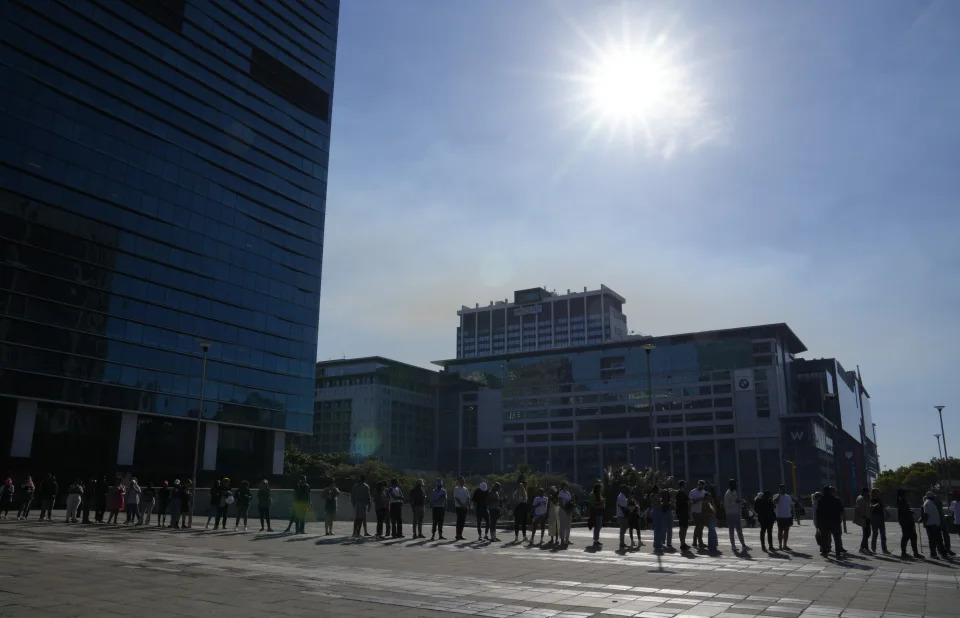

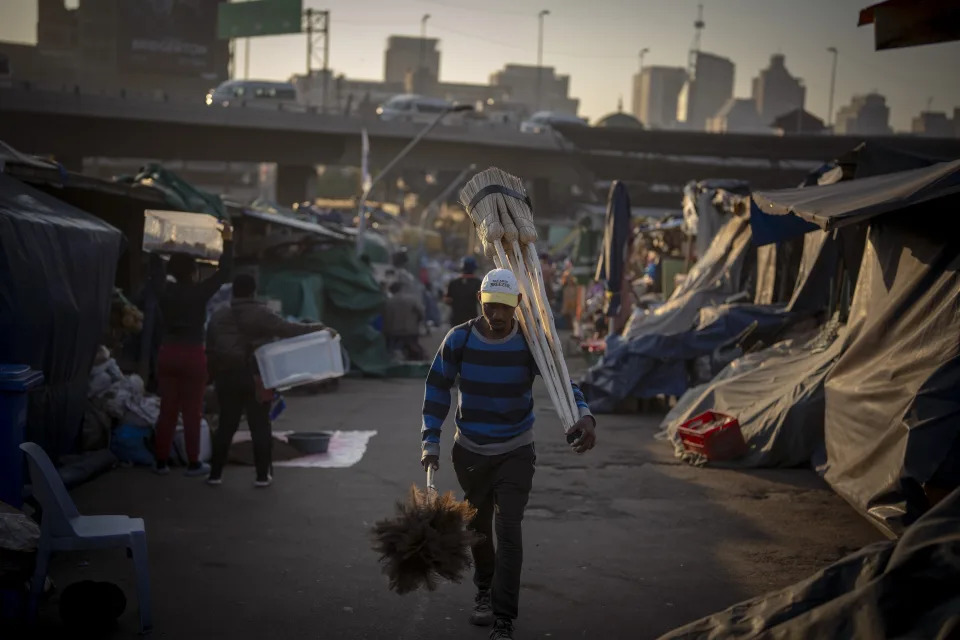
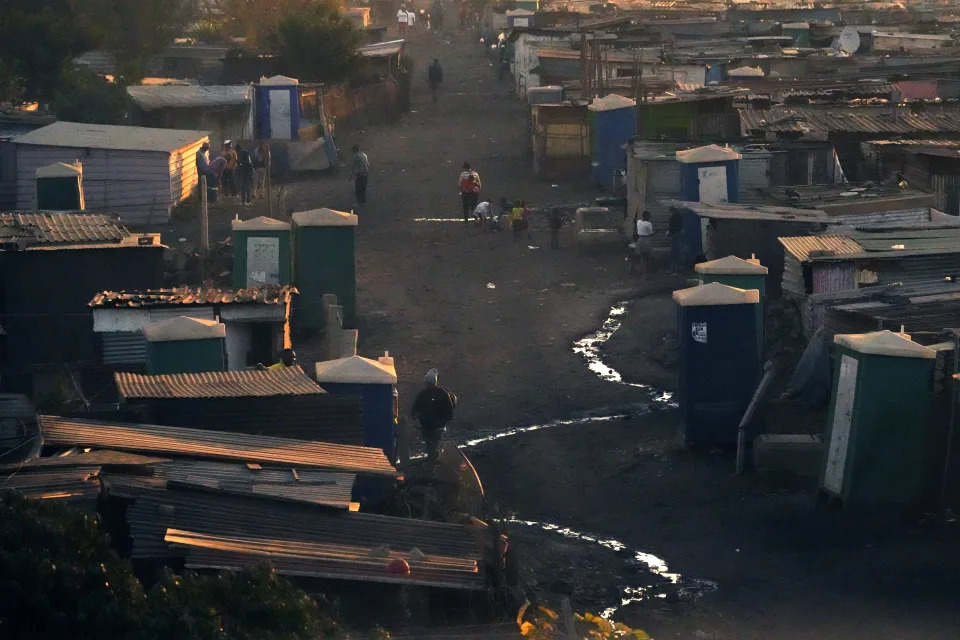
21 / 21
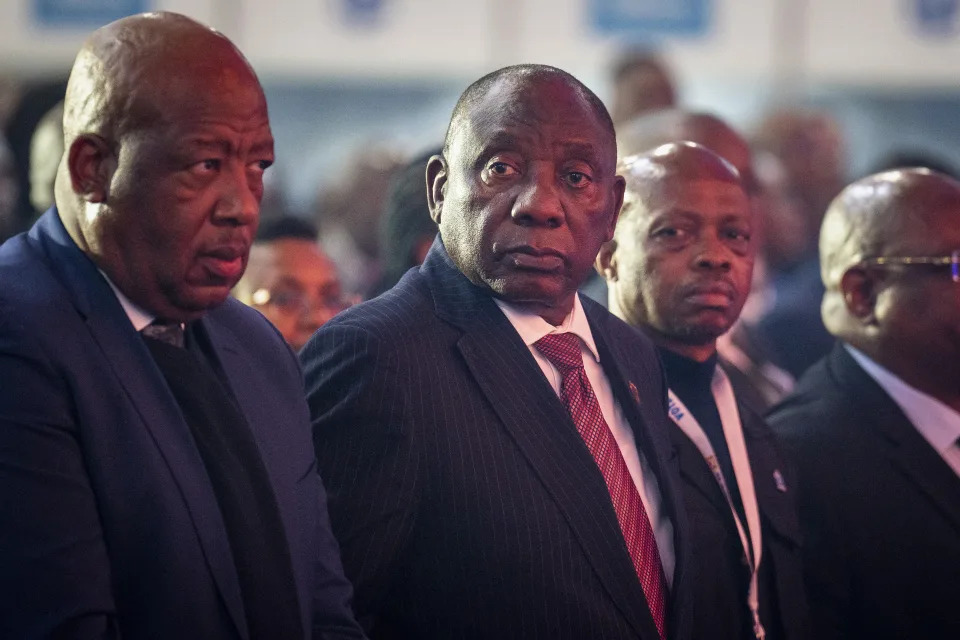



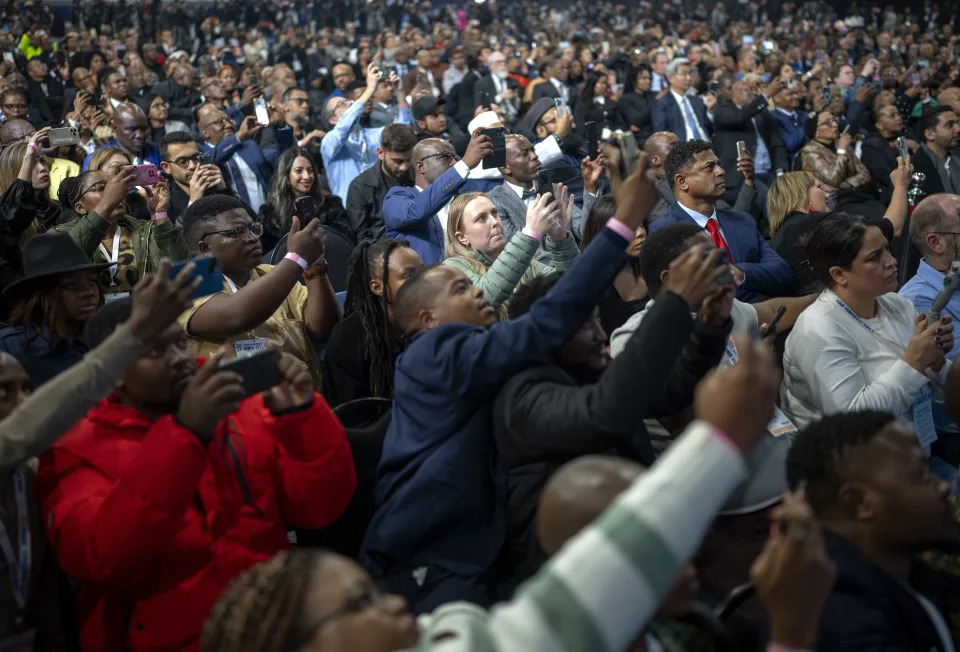









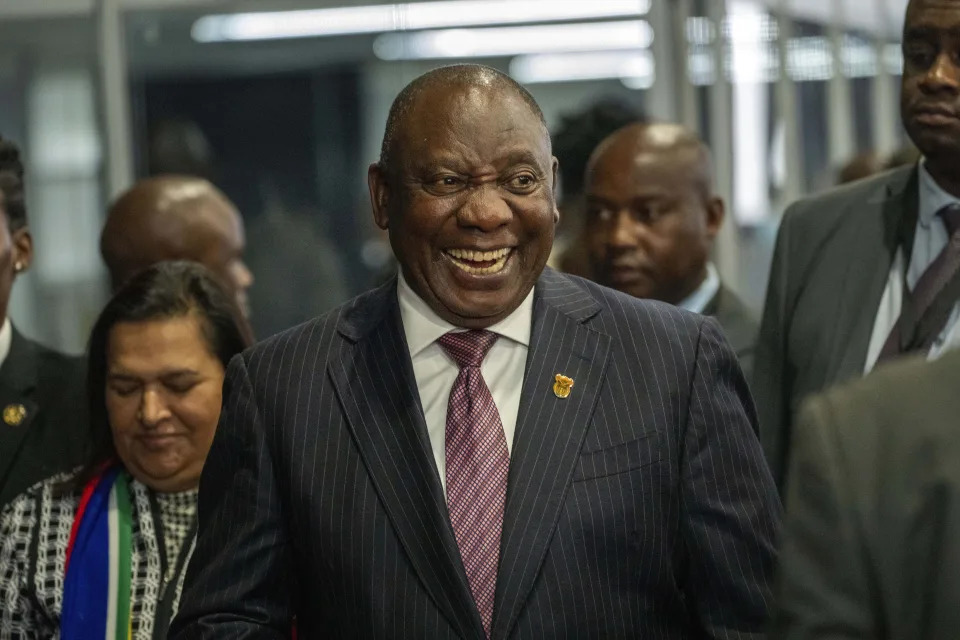
15/ 15
South Africa Election
South African President Cyril Ramaphosa, center, arrives at the National Results Operations Center during the announcement of the results in South Africa's general elections, in Johannesburg, South Africa on Sunday, June 2, 2024. Humbled by a stinging
